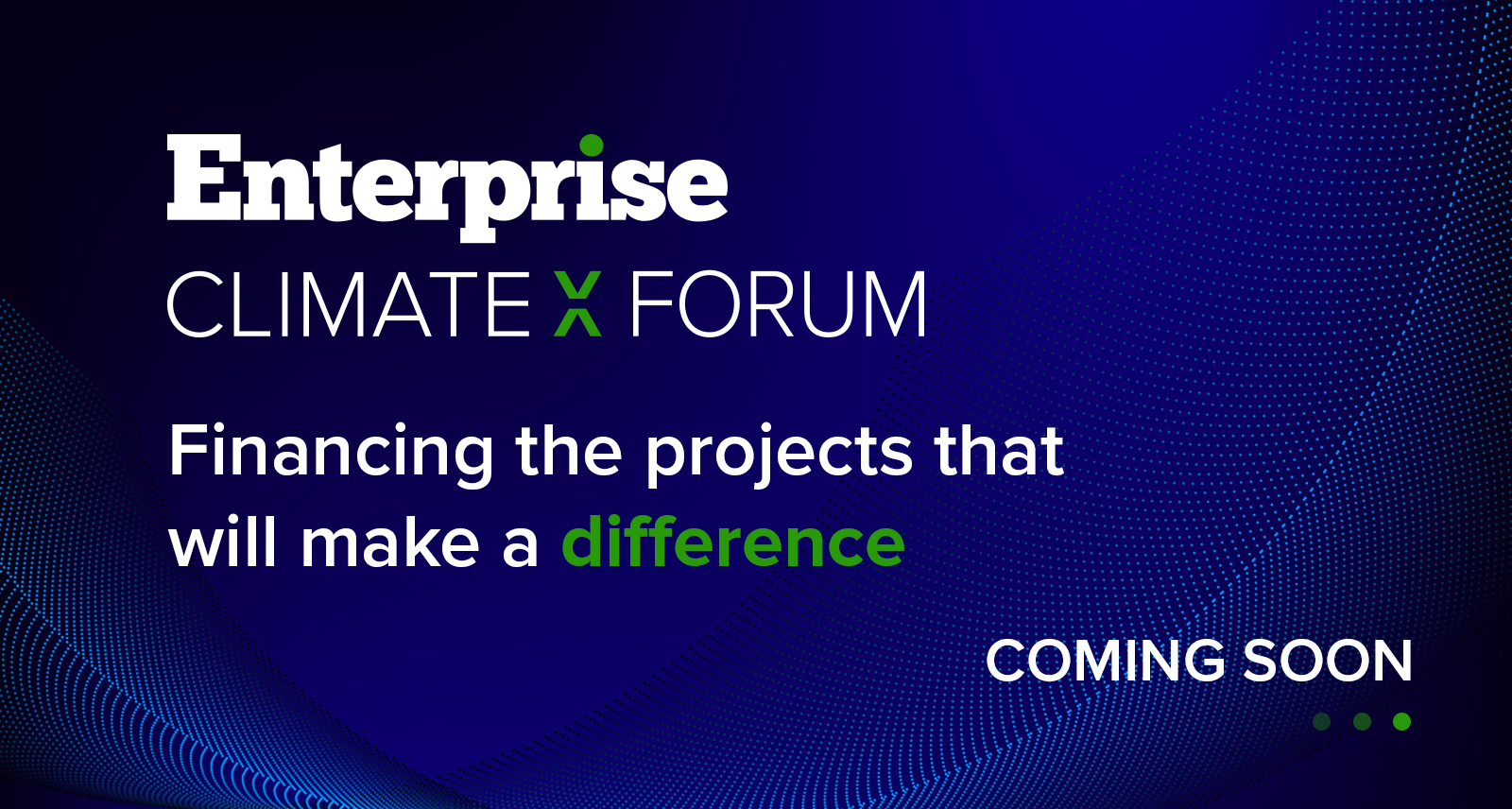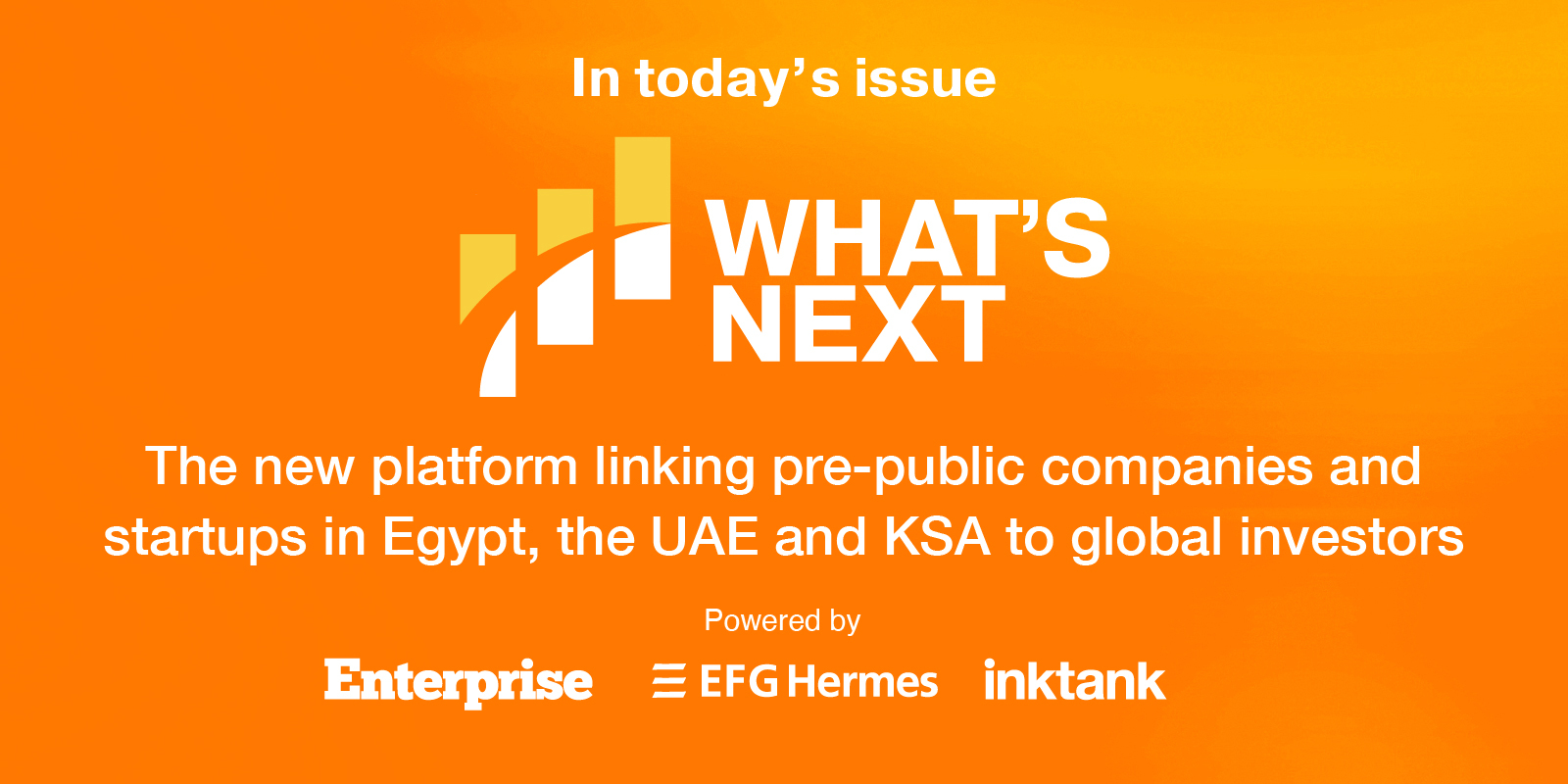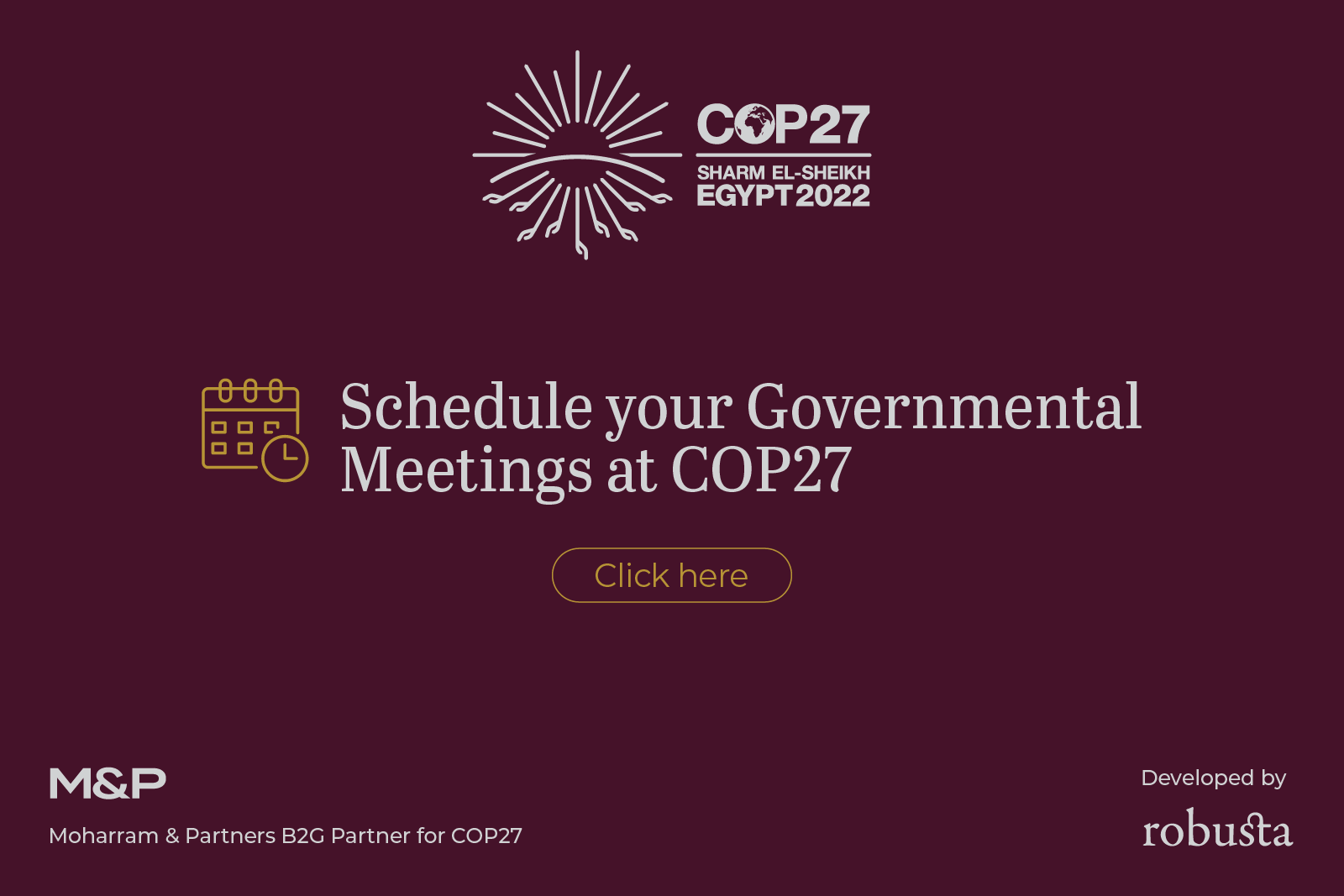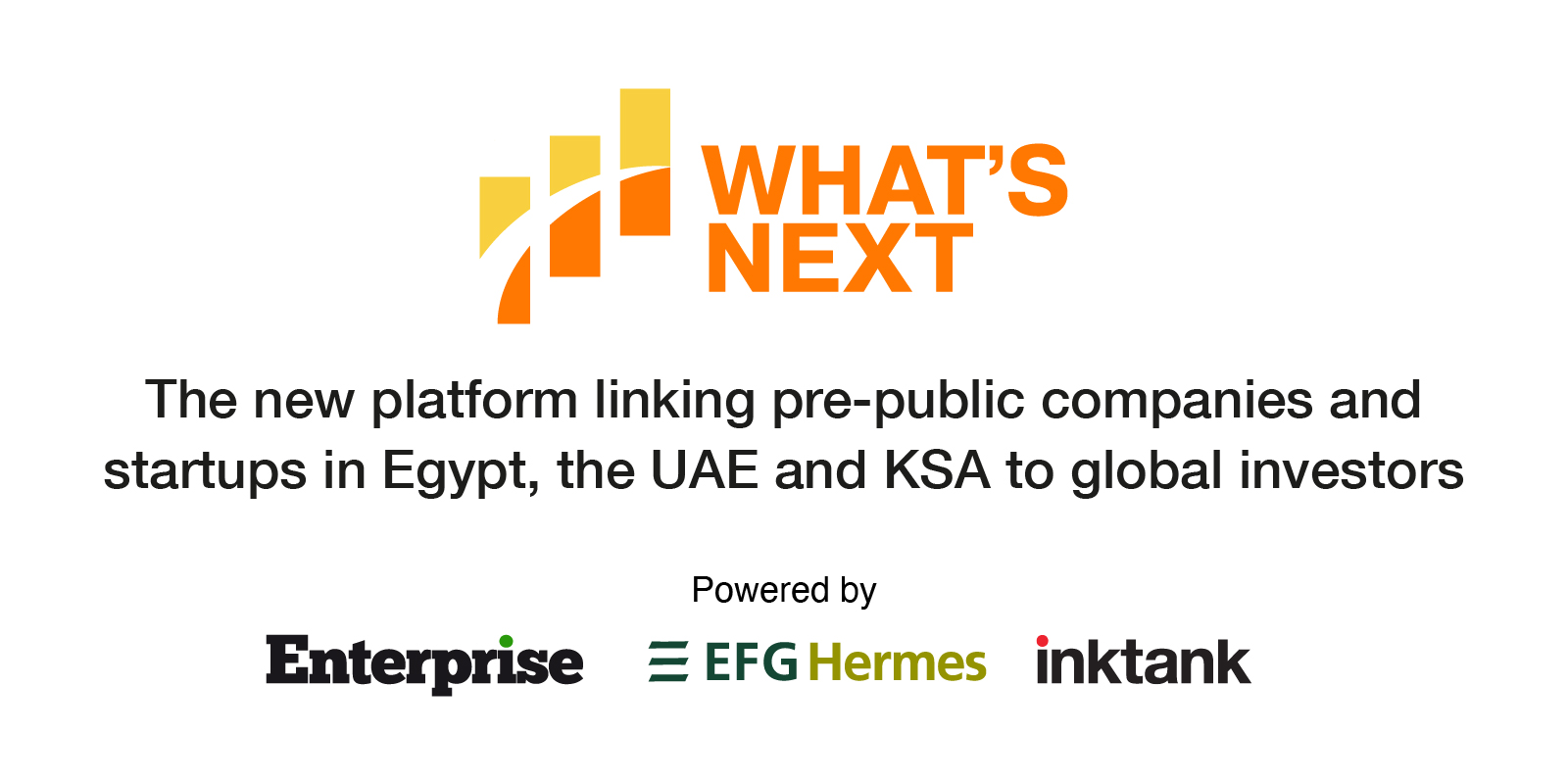- What the [redacted] happened on Thursday? The EGP, the IMF, interest rates + more. (Economy)
- Oh, and letters of credit are on their way out. (Trade)
- MNT agrees to sell 21.7% stake to Chimera Investments. (M&A Watch)
- Expat car-for-FX scheme signed into law. (Trade)
- There’s pressure on the private sector to raise wages after the float. (Last Night’s Talk Shows)
- Nawah Scientific is heading to Saudi Arabia. (Startup Watch)
- Russia blocks Ukraine Black Sea grain exports following drone attack. (What We’re Tracking Today)
- US earnings face USD 10 bn hole in 3Q thanks to stronger greenback. (Planet Finance)
- Enterprise talks to Biola Alabi, Cairo Angels Syndicate Fund’s African Venture Partner. (What’s Next)

Sunday, 30 October 2022
AM — What the [redacted] happened on Thursday? The EGP, the IMF, interest rates + pressure on businesses to raise wages
TL;DR
WHAT WE’RE TRACKING TODAY
Good morning, wonderful people. We hope the weekend was good to you — and that you’ve had plenty of time to digest the float of the EGP and rate hike at the same time as you put your your Halloween decorations.
Our special issue of EnterprisePM had the rundown on everything you need to know. Tap or click here to give it a read or head below to the start of the news well for the Cliff’s / York / Coles notes version, to which we’ve added some analyst feedback from over the weekend.
THE QUESTION OF THE MORNING: Where will the EGP settle? It closed at 23.03 to the greenback on Thursday, fractionally higher than most bankers we spoke with early in the day had expected — and higher than our Fall 2022 Reader Survey and most analysts had predicted just a few short weeks ago.
About 10x more FX changed hands in the interbank market on Thursday than usual, we’re told, suggesting that 23.03 likely not far off the market-clearing price that finds sellers willing to sell and buyers happy to buy.
Let the price gouging begin? Some companies are already re-pricing goods — and more than a few of them are being greedy. Don’t be greedy, warns Prime Minister Moustafa Madbouly, particularly when it comes to imported commodities. Madbouly told a meeting of the nation’s 27 governors this weekend that folks hoarding, price gouging or trying to corner the market on a given commodity would face “harsh penalties.” We have that and more in Last Night’s Talk Shows, below.
The bottom line: Hassan Abdalla’s medicine was just what the doctor ordered. While he’ll be busy in the weeks and months to come, the ball is now in Cabinet’s court to push ahead with the policy reforms necessary to ensure that we don’t wind up in the same position two or three or five years down the road.
A good starting point? Building an economy based on exports and FDI.
UPCOMING NEWS TRIGGERS-
It’s almost at the start of a new month- The key news triggers as we slide towards November:
- PMI: We’ll know how Egypt’s private sector fared in October on Wednesday when S&P Global releases the purchasing managers’ index. A 22-month contraction in private sector activity didn’t show signs of abating in September as high inflation continued to weigh on demand and output.
- Foreign reserves figures for October will be released next week.
- Inflation: Capmas and the central bank will release October’s inflation figures on Thursday, 10 November.
And, of course, COP27 starts just one week from today in Sharm El Sheikh. Big days to look out for include:
- World leaders’ summit: November 7-8 (tons of details here)
- Finance day: November 9
- Decarbonization day: November 11
- Adaptation and agriculture day: November 12
- Water day: November 14
- Energy day: November 15
A fairly detailed schedule is online here and available for download as a .pdf here.
PSA #3: Heading to COP27? The app is now available for download from the App Store as well as from the Google Play Store.
HAPPENING TODAY-
The Senate is back in session today: Senators are returning from a two-week holiday to discuss and vote on legislative amendments that would tighten controls on telecom equipment considered a threat to national security. Changes to the 2003 Telecommunications Act would ban the possession, import and manufacture of certain types of equipment without a license. Lawmakers have not publicly announced what types of equipment would be banned by the legislation — those details are quite likely to be left to the executive regulations of the act, which must be made public six months after the bill is signed into law by the president.
Egypt Energy opens its doors today: The three-day energy conference brings together policymakers and business leaders from the regional energy sector to discuss topics including power generation, clean energy, and PPP and foreign investment. The event is taking place at the Egypt International Exhibition Center and runs through Tuesday.
PSA #1- Clocks shifted back an hour in the UK this weekend, so London is now two hours behind Cairo. Areas of the United States and Canada will follow suit next weekend. Egypt dumped daylight saving time back in 2016, with the peak of DST madness having come in 2014, when clocks changed four times in one year (forward in spring, back for Ramadan, forward again after Ramdan, and then back in fall at the end of DST).
PSA #2- We don’t expect a re-run of Thursday’s rain anytime soon. Our favorite weather app shows nothing but clear skies (with cloudy periods) for the next 10 days. Look for daytime highs this week of 25-27°C and overnight lows of 14-15°C.
LATER THIS WEEK-
Importers, exporters and customs agents have two days left to register to join the Finance Ministry’s digital customs system Nafeza before they can no longer clear goods out of customs at seaports. (Statement | Al Mal)
The Federal Reserve will hold its penultimate policy meeting of 2022 on Tuesday and Wednesday: The folks over at the Fed aren’t expected to take their feet off the gas when they meet this week to review interest rates. The market is pricing in a fourth consecutive 75-bps rate hike on the back of another disappointing inflation release which showed core inflation reaching a new 40-year high in September despite the central bank embarking on its most aggressive tightening cycle in decades. And in reports yesterday, two other indexes closely watched by the Fed provided additional evidence that inflationary pressures continued unabated in September.
How high? Economists surveyed by Bloomberg now see the Fed pushing interest rates up to 5% by March 2023 — a level which would likely push the US and the global economy into recession. The central bank has jacked up the Fed Funds Rate by 300 bps since March, and an additional 75-bps hike on Wednesday will raise the target range to 3.75-4% — its highest level since early 2008.
COUNTDOWN TO COP (7 days to go)-
Egypt has some sort of climate initiative in the making: Egypt will unveil an initiative to confront climate change during COP27, Foreign Minister Sameh Shoukry told Al Arabiya (watch, runtime: 27:48), without giving any details. He added that the state is revising its national plan to reduce emissions.
Protests welcome at COP: Egypt will allow environmental activists to protest near the conference hall and their voices to be heard, Shoukry said. Activists will have a designated area across the street from where COP will be taking place, he said.
We’ll definitely be seeing Biden at COP27… US President Joe Biden will be heading to Egypt next week to attend COP27 on 11 November, White House spokesperson Karine Jean-Pierre confirmed Thursday.
…but No King Charles or Sunak: The UK government has confirmed that King Charles will not make an appearance at COP. Also not making the trip is new UK Prime Minister Rishi Sunak who reportedly has “other pressing domestic commitments.”
Our friends at Hassan Allam Holding have signed up as a provider sponsor at COP27, the company said in a statement (pdf).
|
THE BIG STORY ABROAD- That Turkey-brokered wheat pact is dead. The world could be heading back to the bad old days of pre-23 July wheat shortages after Russia yesterday withdrew from the landmark UN-brokered wheat pact that allowed Ukraine to resume exporting grain via the Black Sea. In a statement yesterday, the Russian Defense Ministry announced it would be suspending its participating in the agreement following what it said was a “terrorist” drone attack by Ukraine on its Black Sea naval fleet in Sevastopol, Russian news agency TASS reported. The agreement, signed at the end of July, has allowed Ukraine to export more than 9 mn tons of grain around the world, helping to ease a global food supply crisis triggered by the war in Ukraine. The story is everywhere, including the Associated Press | Reuters | Bloomberg | Financial Times | WSJ | CNBC.
Also getting a lot of attention this morning: At least 149 people celebrating Halloween in Seoul were killed in a stampede yesterday. Some 150 others were injured in the crush, with many in critical condition. The exact cause of the incident remains unknown. The AP | Reuters | CNN | and Washington Post have the story.
BRIEFLY NOTED-
DATA POINT- Suez Canal revenues rose 27% y-o-y in October, clocking in at USD 703.4 mn compared to USD 552.9 mn in October 2021, the canal’s chairman Osama Rabie said Friday.
Al Ahly claimed the Egyptian Super Cup on Thursday beating Zamalek 2-0 in Abu Dhabi to deny their cross-town rivals the treble. This marks the club’s 12th Super Cup title, and comes just a couple of months after suffering a 2-1 defeat to Zamalek in the Egypt Cup final.
IN MEMORIAM- Bahaa Taher, the Egyptian author and recipeint of the first iteration of the Arabic Booker prize, passed away Thursday at the age of 87 after a long battle with illness, according to the State Information Service. The acclaimed author is best known for his novel Sunset Oasis, which won the inaugural International Prize for Arabic Fiction in 2008.
*** It’s What’s Next day: We have our weekly deep-dive into what makes and shapes pre-listed companies and startups in Egypt, the UAE and KSA, touching on investment trends, future sector insights and growth journeys.
In today’s issue: We sit down with angel investor Biola Alabi who recently joined Cairo Angels Syndicate Fund as a venture partner to talk about the African startup scene, collaboration between African VCs, access to capital on the continent, and the global VC funding squeeze.
2CELLOS — LIVE AT SOMABAY on 18 November, 2022: Mark your calendars — world-renowned and wildly popular cellist duo, 2CELLOS will be performing at Somabay on 18 November, 2022. Having racked up a bn-plus audio streams, countless sold-out concerts, and mns of fans across the globe in their 10 years together as 2CELLOS, the Croatian duo of Luka Šulić and HAUSER will be visiting Egypt in their long-awaited 2022 Dedicated World Tour. Book your ticket now: https://www.ticketsmarche.com/tickets/buy-tickets-2-cellos.html. Call us 16390.
ECONOMY
ICYMI: Taweem 3.0, IMF loan, rate hike, and more

What the [redacted] happened on Thursday? The Central Bank of Egypt (CBE) at the end of last week went ahead with a series of measures to restore liquidity to the FX market and revive investor confidence in the economy — and topped it off by announcing a USD 3 bn loan agreement from the IMF.
GO DEEPER- We had the full story along with commentary from analysts and experts in Thursday’s edition of EnterprisePM.
Need the short version? Here’s a recap of what went down:
#1- The CBE moved to a “durably flexible foreign exchange rate regime” that allows market forces to determine the value of the EGP, according to a statement (pdf). The CBE price of the EGP fell around 16.3% to settle at a record low of 22.9986 against the USD at Thursday’s close; in banks, it was changing hands at about 23.03 to the greenback.
#2- The central bank also hiked interest rates by 200 bps, setting the overnight deposit rate at 13.25%, the overnight lending rate at 14.25% and its main operations rate at 13.75%. State-owned banks followed up with three-year, high-yield CDs: Banque Misr (pdf), the National Bank of Egypt (pdf), and Banque du Caire each brought to market three-year, 17.25% certificates of deposit alongside other savings instruments with variable interest rates.
#3- And introduced FX forward contracts and swap agreements: The CBE will allow banks to use FX forward contracts, engage in foreign currency swap agreements for corporate clients, and scrap restrictions on non-deliverable forwards for corporate or retail clients, according to a separate circular (pdf). FX swaps and FX forward contracts will be allowed provided they are used to cover documentary collection, L/Cs, repatriation requests from foreign investors, or clients’ proceeds from exporting goods and services. Give our nifty explainer on forwards — which are a type of derivative — a read for a deeper dive.
#4- The CBE will aim to double FX reserves over the course of the next four years, Abdalla said during a presser on Thursday. Egypt’s reserves stood steady at nearly USD 33.2 bn in September, with our primary sources of FX being tourism receipts, exports, remittances, and Suez Canal revenues.
The questions on everyone’s minds right now:
#1- Did the EGP hit a market-clearing rate against the greenback on Thursday? Analysts are penciling in anywhere between EGP 22-25 by the end of next year. In the nearer term, long-time market watcher Hany Geneina sees the EGP overshooting to anywhere between 25-27 against the greenback and ultimately settling at EGP 25 / USD 1 by the end of 2022, while others — including Goldman Sachs — also see the EGP weakening further in the near term. The interbank market on Thursday saw about 10x more USD changing hands than the average day in the past couple of months, a strong indication that something around EGP 22.50-23.50 is the market clearing rate for the USD.
#2- Are we in for a re-pegging down the line? The CBE’s use of the word “durably” before a “flexible exchange rate” points to the intention of keeping the exchange rate flexible. Exchange rate flexibility was a key demand for the IMF loan — and was part of the reason that talks stretched on for months. “The stable FX rate had negative impacts on Egypt’s reserves and the economy as a whole, especially in light of the external global economic shocks,” Finance Minister Mohamed Maait said in recent weeks, explaining why the lender sees a flexible exchange rate as crucial for the Egyptian economy.
#3- How bad will inflation get post-deval? Goldman Sachs sees inflation peaking close to 19% in January, while Naeem Brokerage sees it peaking at 20% by the end of December, “which could require another 100 bps hike.” The uptick, however, will likely be “transient,” Goldman Sachs analysts say. Inflation hit a fresh four-year high of 15.0% in September amid an ongoing surge in living costs fuelled by the war in Ukraine and a weaker EGP.
#4- Was the rate hike necessary? While analysts we spoke to agree that the rate hike was expected and necessary to tamp down on inflation, we flatly disagree.
- Going for a rate hike to attract hot money is entering a race we cannot win when (safer, more stable) developed economies are in aggressive tightening cycles.
- Rate hikes are likely to have limited impact on domestic savers;
- Rate hikes are bad for business when what we really need to do now is build an economy on FDI and exports;
- And they’re bad for the state budget, driving up debt service costs for the state.
ON THE IMF PACKAGE-
The IMF finally threw us a lifeline: The USD 3 bn, 46-month extended fund facility (EFF) is designed to “provide Egypt with balance of payments and budget support while catalyzing additional financing from Egypt’s international and regional partners to maintain economic stability, address macroeconomic imbalances and spillovers from the war in Ukraine, protect livelihoods, and push forward deep structural and governance reforms to promote private sector-led growth and job creation,” the IMF said in a statement.
And we could be getting up to USD 9 bn: We could unlock additional financing of about USD 5 bn from “multilateral and regional partners” for FY2022-23 that is set to “help strengthen Egypt’s external position,” the IMF said. The IMF will also be in talks with the government over the coming months over an additional USD 1 bn from its resilience and sustainability trust.
The package will keep pressure on policymakers to push ahead with reforms: The package will keep up pressure to drive home reforms and stay the course on building a new Egyptian economy with a focused program to build export industries and attract meaningful FDI. “The limited size of the programme will help maintain pressure on the authorities to see through the adjustment and their reform agenda, and is thus potentially positive for the credit in the long term,” Goldman Sachs MENA economist Farouk Soussa wrote in a note.
Will the carry trade come back? Analysts are divided on whether the small size of the program is enough to win back the attention of foreign investors in EM debt, especially given the tightening financial conditions internationally. Naeem Brokerage wrote that the agreement would bring “sizeable hot money inflows” and could allow the government to take new international issuances to market in the coming 3-5 months. “We expect the total funding gap (which we estimate to be USD20bn for the coming year) to be closed by 1H 2023.” Goldman isn’t so sure: “The funding being made available in the programme is unlikely, in our view, to immediately allay investor concerns regarding Egypt’s medium-term external financing outlook. We therefore do not expect market access to be restored in the immediate term,” Soussa wrote.
WHAT’S NEXT- The funding package still requires final sign-off from the IMF’s Executive Board, which is scheduled to meet to discuss the agreement in December, according to the statement.
The story got a lot of coverage internationally: Reuters | Associated Press | Financial Times | Bloomberg | Wall Street Journal | New York Times.
CORRECTION- In our second reference to the IMF Facility in Thursday’s EnterprisePM, we referred to it as a six-month facility. It is a 46-month facility, as we correctly noted at the head of the issue. We’ve updated the story on our website.
M&A WATCH
MNT agrees to sell 21.7% stake to Chimera Investments

Chimera snaps up c.22% of MNT Investments: Netherlands-based MNT Investments — which is majority-owned by GB Auto subsidiary GB Capital — agreed to sell a 21.7% stake to a unit of Chimera Investments, GB Auto said in an EGX disclosure (pdf) on Thursday.
The sellers: GB Auto is selling a 7.5% indirect stake in MNT Investments for USD 60 mn with an earnout component that could reach USD 71.3 mn, according to the statement. The sale reduces GB Auto’s indirect stake in MNT Investments to 49.5%. We don’t know who the other sellers are, but Africa-focused private equity firm Development Partners International is among MNT Investments’ current shareholders.
GB Auto has been mulling a partial sale of MNT Investments since March and sold a 5% indirect stake in MNT to unnamed foreign investors in a EGP 352.7 mn transaction last year.
Chimera likes GB — and our wider NBFS sector: The Abu Dhabi-based investment firm recently entered talks with GB Capital to buy a 45% stake in its leasing arm, GB Lease. Chimera also acquired a 56% stake in Beltone Financial for around EGP 384.8 mn in August.
What is MNT? The Netherlands-based payments company is the parent company of asset-based lender Mashroey and microfinance player Tasaheel. Last year they entered into a share swap agreement with Egyptian fintech / delivery / ride-hailing company Halan to create super-app MNT-Halan.
Advisors: Arqaam Capital acted as exclusive sell-side financial advisors to GB Auto, while White & Case acted as international legal counsel and Matouk Bassiouny served as local legal counsel. Adsero – Ragy Soliman & Partners acted as local counsel to Chimera, while Shearman & Sterling was international legal counsel.
AUTOMOTIVE
Expat car-for-FX scheme signed into law + Bye bye, L/Cs

The expat car import scheme is on its way: President Abdel Fattah El Sisi has signed into law a bill that will allow Egyptian expats to import cars and get customs and tax exemptions after paying upfront in FX, according to a decision published in the Official Gazette.
Refresher- Under the law, expats will be able to bring cars into Egypt, paying customs fees, VAT, and other taxes upfront in FX. They will then receive a full rebate on the dues in five years’ time — paid in EGP at the USD-EGP exchange rate at that time and without interest. This comes as the state works to boost FX inflows into the country.
What’s next: In two weeks’ time, the cabinet will publish the executive regulations for the law in the Official Gazette, after which expats will have four months to take advantage of the scheme and pay their dues to the Finance Ministry. They’ll then be given a year to import their car of choice.
The government thinks the scheme will pave the way for 300k-500k cars being imported, drawing USD 2.5 bn in foreign currency in the process, but some industry players are skeptical. Local demand for imported vehicles sits at 120k a year, Khaled Saad, the head of the Egyptian Association of Automobile Manufacturers told us.
Could the move help bring down market prices? The inflow of vehicles will help bridge the gap between supply and demand to eventually bring down current high prices, Osama Aboul Magd, head of the Egyptian Automotive Dealers Association, told Enterprise.
GOODBYE FOREVER (IN TWO MONTHS), L/Cs-
Farewell, letters of credit: As part of the raft of measures brought in on Thursday that included the EGP float and rate hike, the central bank will phase out its letter of credit (L/Cs) system for importers before the end of the year, CBE governor Hassan Abdalla said during a presser on Thursday (watch, runtime: 11:27). The “gradual” rollback of the system will come as welcome news for importers, who have been struggling for months to get goods released from Egyptian ports as the state looked to preserve FX.
Immediate changes:
- Imports worth up to USD 500k will no longer need to use L/Cs and can rely on documentary collection, a huge leap up from the previous USD 5k limit, according to a circular (pdf) published by the central bank.
- No L/Cs for rice: The bank has also added rice to the list of commodities exempted from requirements to use L/Cs, joining tea, fish, wheat, powdered milk, and corn.
“Cargoes currently stuck in ports could see the light of day within two weeks” as a result of the CBE easing import restrictions, National Bank of Egypt Deputy Chairman Yehia Aboul Fotouh said in a phone-in with Yahduth fi Masr on Thursday (watch, runtime: 4:34).
In context: Importers have struggled to access L/Cs since the central bank made their use a requirement earlier this year, causing shortages of industrial and consumer goods and forcing manufacturers and assemblers in some sectors to slow or even suspend production. The automotive sector has been particularly hard-hit, with vehicle sales seeing major declines as cars piled up at ports and global manufacturers suspended business here.
STARTUP WATCH
Nawah Scientific is heading to Saudi Arabia
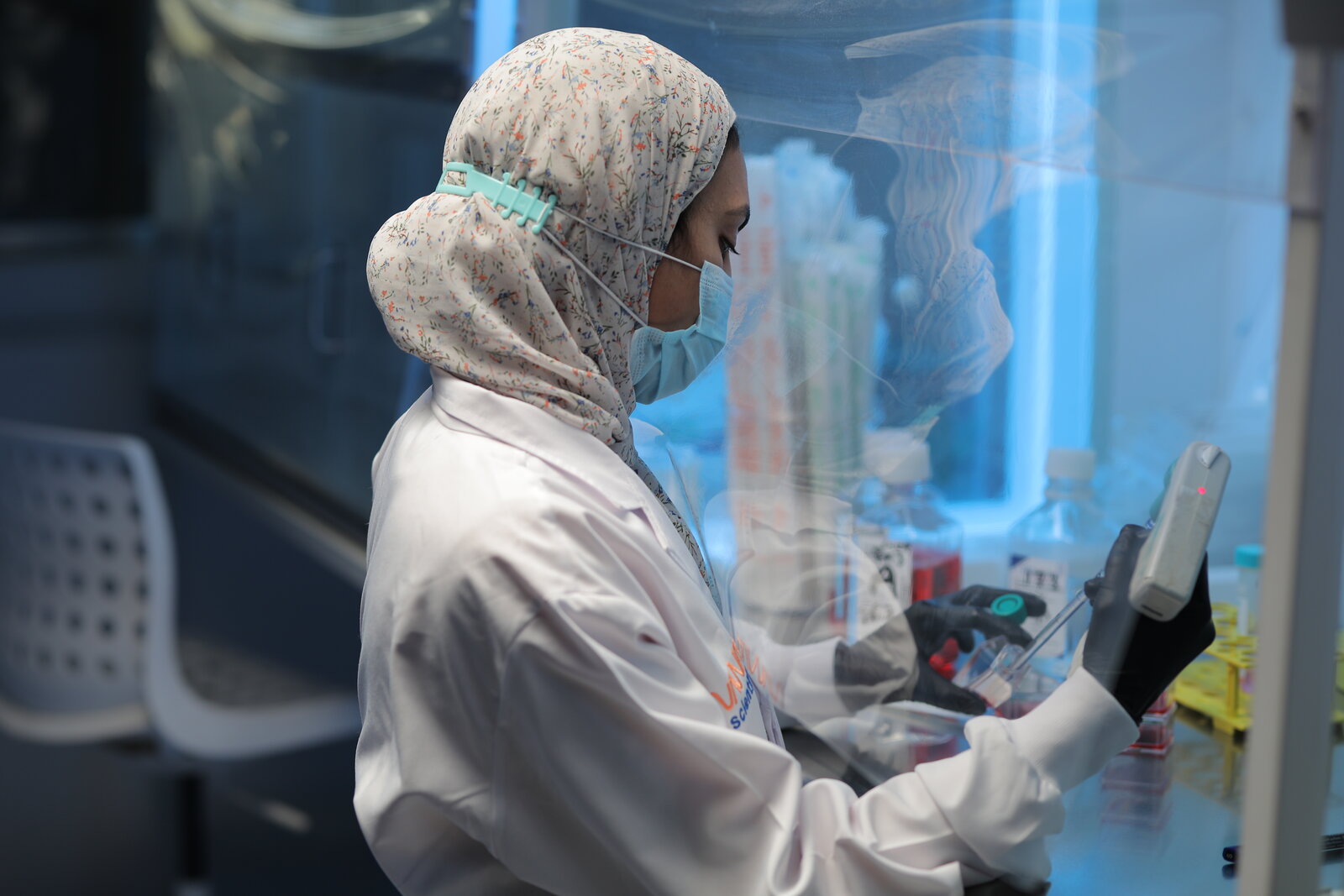
Scientific research startup Nawah Scientific is investing up to USD 10 mn in the first phase of a regional expansion to Saudi Arabia, CEO and founder Omar Shoukry (My Morning Routine) told Enterprise on Thursday. Total investments in the expansion are expected to exceed USD 20 mn, Shoukry says. Nawah expanded into the Jordanian market in 2021.
Why Saudi? “The biggest number of universities and industries in the pharma, food, and agriculture sectors in the GCC make it a very attractive market for us,” Shoukry said, adding that the company is set to bank on Saudi’s pool of skilled scientists.
Nigeria is next: The company plans to launch in Nigeria in 1Q 2023 through strategic partnerships with local players who have an understanding of the country’s culture and business environment, Shoukry said. Shoukry joined Enterprise on a fact-finding trip to Lagos to delve into Nigeria’s startup scene earlier this year.
2022 has been a very good year: Nawah entered the black at the beginning of this year and its revenues are expected to grow at a 250% clip in 2022, Shoukry told us.
The next investment round: The scientific research startup expects to close a sizable series A investment by the end of 2022, according to Shoukry, having raised USD 3 mn in pre-series A funding.
LAST NIGHT’S TALK SHOWS
The economy dominated the conversation on the airwaves last night and over the weekend in the wake of the currency devaluation on Thursday and the announcement of a fresh loan agreement with the IMF. Everyone covered the 16%+ slide in the EGP, with Al Hayah Al Youm host Mostafa Sherdy describing the float on Thursday as “bitter medicine” (watch, runtime: 3:58) and Kelma Akhira’s Lamees El Hadidi trying to explain to her viewers why the government has had to again devalue the currency and what might come next for the economy (watch, runtime: 21:44). Since launching on Thursday, savers have invested more than EGP 12 bn into the National Bank of Egypt’s three-year 17.25% CDs, NBE Vice President Yehia Aboul Fotouh told Kelma Akhira (watch, runtime: 5:52).
PRESSURE ON BUSINESSES TO HIKE WAGES
President Abdel Fattah El Sisi used an appearance at an manufacturing expo to pressure the private sector to raise wages, asking Federation of Egyptian Industries (FEI) boss Mohamed El Sewedy in a back-and-forth how much the private sector planned to raise wages. El Sewedy told the president businesses were committed to an EGP 300 bump.
BACKGROUND- El Sisi asked the question just days after he (a) suggested EGP 10k is an appropriate minimum wage for “a working man” and (b) after his government promised it would give civil servants and employees of state-owned enterprises an EGP 300 per month bump and raise the minimum wage to EGP 3k.
El Sewedy and Federation of Investors Associations boss Sobhi Nasr (among others) hit the airwaves to drive home the message, promising that private-sector employees will get an extra EGP 300 in their next monthly paycheck.
The catch: Neither FEI nor EFIA have the power to impose a wage hike on anyone, including their members. The private-sector minimum wage is set by Cabinet’s national minimum wage council. The private-sector minimum wage is currently EGP 2.4k.
Yes, it will be inflationary, but raising the minimum wage is the right thing to do: Regular readers know that we think that figure is ridiculously low — and that we think the council should with extreme prejudice reject applications for exemptions from the minimum wage. If you can’t find a way to build a real business while paying the minimum wage, then your business (or industry) doesn’t deserve to exist.
A push for import substitution: The talking heads made a big deal of last week’s IMCE expo, which saw the launch of a new government initiative dubbed Ebda that aims to accelerate the localization of industrial production and lower the country’s reliance on imported goods. “We must manufacture a large segment of the industrial components we buy abroad. This way we help the GDP grow and create jobs,” President Abdel Fattah El Sisi said at the event yesterday, calling on companies to focus on ramping up local production (watch, runtime: 2:11).
About Ebda: The National Initiative of Developing Egyptian Industry (Ebda) will offer a number of incentives to companies to invest in industrial production in a bid to onshore manufacturing, reduce imports and create jobs. It will offer companies five-year tax exemptions and land plots under a usufruct framework, according to Ittihadiya, which is yet to provide further information. The conference saw the launch of 64 projects in various industries under the initiative, Gebaly said.
Golden licenses for all: El Sisi announced that all investors will be granted three-month golden licenses, making it easier for them to set up projects. This got coverage from DMC’s Al Youm (watch, runtime: 3:05), El Hayah Al Youm (watch, runtime: 1:16) and Kelma Akhira (watch, runtime: 0:38). Check our explainer on golden licenses here.
El Gebaly waxed lyrical on the event and what it could mean for local industry: The IMCE will be a “great push” for local industries in the coming period, El Gebaly told DMC’s Al Youm (watch, runtime: 3:11). He also phoned in to Kelma Akhira (watch, runtime: 11:00) and talked to El Hadidi about some of the projects that were inaugurated at the event including a EGP 1 bn feed project in Gamasa’s industrial zone in Dakahlia and a revived soda ash project. The launch of the projects under the initiative also got coverage from Al Hayah Al Youm (watch, runtime: 19:03).
Also on the airwaves last night:
- Automotive distributors are worrying about the prices of foreign cars in light of the devaluation: Alaa El Sabaa, member of the Federation of Egyptian Chamber of Commerce’s auto division, told Ala Mas’ouleety that some international car companies will likely hike prices based on USD prices at banks, adding that one company has already raised prices by 10-12% (watch, runtime: 5:50).
- Price tag everything, or else: Companies that don’t put a price label on products would be in risk of an immediate fine of up to EGP 2 mn, Ayman Hossam El Din, head of the Consumer Protection Agency told Ala Mas’ouleety (watch, runtime: 5:19). His statements come hours after PM Moustafa Madbouly ordered the watchdog to monitor citizens’ complaints on any exaggerated selling prices and take action against any violating traders, according to a statement.
EGYPT IN THE NEWS
Dominating the conversation in the foreign press this morning: Thursday’s EGP devaluation and the announcement of a USD 3 bn IMF agreement is leading the conversation on Egypt this morning. We have the full story in this morning’s Economy section, above.
Human rights is a particularly big deal in the UK right now, where dozens of MPs and lords have called on the foreign secretary to step up pressure on Egyptian authorities to release activist Alaa Abdel Fattah. Greenpeace became the latest international NGO to call for his release in the run-up to COP (The Guardian | The Independent). Meanwhile, Time, and Quartz are also looking at our hosting of COP27 through the lens of human rights.
How are our coral reefs adapting to climate change? Reefs are facing an “existential crisis” globally, driven by climate change, overfishing and coastal construction — but our local reefs are particularly resilient, Reuters reports (watch, runtime: 3:52). “We have in Egypt coral reefs that will be among the last remaining in the world, which means it will provide hope for humanity that a unique ecosystem like this remains alive,” said marine biologist Dr. Mahmoud Hanafy. We interviewed Dr Hanafy for a recent deep dive on the state of the nation’s coral reefs. Meanwhile, the National reports that Alexandria is at risk of being submerged as the climate crisis intensifies.
ALSO ON OUR RADAR
Other things we’re keeping an eye on this morning: valU and aiBANK are providing finance options to customers of Sylndr, a group of companies are exploring LNG bunkering in Egypt, and the UK’s charities watchdog has launched an investigation into the British School of Alexandria.
Here’s the rundown:
- EFG Hermes’ BNPL platform valU and aiBANK will offer customers of online used-car retailer Sylndr financing solutions. Under the partnership, Sylndr customers can pay for their used cars with valU’s 6-60 month installment plans. (Statement, pdf)
- UAE pharma distributor and supplier Unimed will be the authorized dealer for Egyptian pharma company Wadi El Neel Benta’s (WNB) products in the UAE. (Statement)
- EGAS signed a letter of intent with Shell, Pyramid Navigation, Infinity and Eagle Gas to explore LNG bunkering. The Suez Canal Economic Zone wants to start providing bunkering services to ships from 1Q 2023. (Oil Ministry statement)
- Saudi aviation fuel supplier Arabian Petroleum Supply Company (APSCO) is looking to invest in refueling services at all Egyptian airports, starting with Cairo International Airport. (Statement)
- The UK’s charity watchdog has launched an inquiry into the British School of Alexandria after it failed to open its accounts to the regulator. (Statement)
PLANET FINANCE
Musk is now officially chief twit: Elon Musk has closed his USD 44 bn acquisition of Twitter after a six-month saga that almost hashed out in court in a high-profile trial. Following the acquisition, Musk ousted Twitter’s CEO and CFO, and sources told Reuters that he plans to become interim CEO. Musk had for months cast doubt over his intentions to buy the company, claiming it had failed to adequately disclose the number of spam bots and fake accounts on the platform, leading Twitter to sue the b’naire. (CNBC | Bloomberg | Financial Times | Associated Press | Washington Post)
The surging USD is weighing on US corporate earnings: The red-hot greenback is expected to erase more than USD 10 bn from US 3Q earnings, the Financial Times reports. Tightening financial conditions have sent the USD surging to 20-year highs this year, hurting US companies’ overseas sales. Each 8-10% rise in the USD index knocks one percentage point from S&P 500 earnings per share, according to Jonathan Golub, Credit Suisse’s head of US equity strategy.
| EGX30 | 11,072 | +4.9% (YTD: -7.3%) | |
| USD (CBE) | Buy 22.86 | Sell 23.00 | |
| USD at CIB | Buy 22.90 | Sell 23.00 | |
| Interest rates CBE | 13.25% deposit | 14.25% lending | |
| Tadawul | 11,710 | -0.8% (YTD: +3.8%) | |
| ADX | 10,287 | -0.1% (YTD: +30.8%) | |
| DFM | 3,349 | -0.5% (YTD: +4.8%) | |
| S&P 500 | 3,901 | +2.5% (YTD: -18.1%) | |
| FTSE 100 | 7,048 | -0.4% (YTD: -4.6%) | |
| Euro Stoxx 50 | 3,613 | +0.2% (YTD: -16.0%) | |
| Brent crude | USD 95.77 | -1.2% | |
| Natural gas (Nymex) | USD 5.68 | -3.3% | |
| Gold | USD 1,644.80 | -1.3% | |
| BTC | USD 20,851 | +1.2% (YTD: -54.8%) |
THE CLOSING BELL-
The EGX30 rose 4.9% at Thursday’s close on turnover of EGP 2.3 bn (55.1% above the 90-day average). Local investors were net sellers. The index is down 7.3% YTD.
In the green: Egypt Kuwait Holding-EGP (+9.7%), QNB Al Ahly (+9.3%) and CIB (+9.2%).
In the red: Housing and Development Bank (-2.2%), Madinet Nasr Housing and Development (-1.5%) and Heliopolis Housing and Development (-1.3%).
CALENDAR
OCTOBER
October: Air Sphinx, EgyptAir’s low-cost subsidiary to commence operations.
30 October-1 November (Sunday-Tuesday): Egypt Energy, Egypt International Exhibition Center (EIEC), New Cairo.
Late October-14 November: 3Q2022 earnings season.
Late October: First Abu Dhabi Bank to complete full integration with Bank Audi’s Egyptian operations after merger.
NOVEMBER
1 November (Tuesday): Deadline for importers, exporters and customs brokers to join Nafeza.
1-2 November (Tuesday-Wednesday): Federal Reserve interest rate meeting.
1-2 November (Tuesday-Wednesday): Arab League annual summit, Algiers, Algeria.
3-5 November (Thursday-Saturday): Egypt Fashion Week.
4-6 November (Friday-Sunday): Autotech auto exhibition, Cairo International Exhibition and Convention Center.
5-8 November (Sunday-Tuesday): Techne Summit for Investment and Entrepreneurship, Alexandria, Egypt
6-18 November (Sunday-Friday): Egypt will host COP27 in Sharm El Sheikh.
7 November (Monday): Middle East Green Initiative, Sharm El Sheikh.
7 November (Monday): The inauguration of the first line of the high-speed rail.
9 November (Wednesday): Finance Ministry to host “Finance Day” at COP27.
11-12 November (Friday-Saturday): Saudi Green Initiative, Sharm El Sheikh.
7-13 November (Monday-Sunday): The International University Sports Federation (FISU) World University Squash Championships, New Giza.
15-16 November (Tuesday-Wednesday): G20 summit, Bali, Indonesia.
21 November-18 December (Monday-Sunday): 2022 Fifa World Cup, Qatar.
27 – 28 November (Thursday-Friday): The first edition of the Egypt Media Forum.
27-30 November (Sunday-Wednesday): Cairo ICT, Egypt International Exhibition Center, New Cairo.
DECEMBER
3 December (Saturday): Dior Men’s pre-fall collection show in Giza.
13-14 December (Tuesday-Wednesday): Federal Reserve interest rate meeting.
13-15 December (Tuesday-Thursday): US-Africa Leaders Summit.
15 December (Thursday): European Central Bank monetary policy meeting.
22 December (Thursday): Central Bank of Egypt’s Monetary Policy Committee meeting.
December: The Sixth of October dry port will begin operations.
December: Egyptian Automotive Summit.
December: Egypt to expand Sudan electricity link capacity to 300 MW.
JANUARY 2023
January: EGX-listed companies and non-bank lenders will submit ESG reports for the first time.
January: Fuel pricing committee meets to decide quarterly fuel prices.
1 January (Sunday): Use of Nafeza becomes compulsory for air freight.
1 January (Sunday): Residential electricity bills are set to rise as per the government’s six-year roadmap (pdf) to restructure electricity prices by 2025.
7 January (Saturday): Coptic Christmas.
24 January-6 February: The 54th Cairo International Book Fair, Egypt International Exhibition Center
25 January (Wednesday): 25 January revolution anniversary / Police Day.
26 January (Thursday): National holiday in observance of 25 January revolution anniversary / Police Day.
30 January-1 February (Monday-Wednesday): CI Capital’s Annual MENA Investor Conference 2023, Cairo, Egypt.
FEBRUARY 2023
11 February (Saturday): Second semester of 2022-2023 academic year begins for public universities.
13-15 February (Monday-Wednesday): The Egypt Petroleum Show (Egyps), Egypt International Exhibition Center, Cairo.
23-27 February (Thursday-Monday): The eighth annual Business Women of Egypt’s Women for Success conference.
MARCH 2023
March: 4Q2022 earnings season.
23 March (Wednesday): First day of Ramadan (TBC). Maghreb will be at 6:08pm CLT.
APRIL 2023
17 April (Monday): Sham El Nessim.
22 April (Saturday): Eid El Fitr (TBC).
25 April (Tuesday): Sinai Liberation Day.
27 April (Thursday): National holiday in observance of Sinai Liberation Day (TBC).
Late April – 15 May: 1Q2023 earnings season.
MAY 2023
1 May (Monday): Labor Day.
4 May (Thursday) National holiday in observance of Labor Day (TBC).
22-26 May (Monday-Friday): Egypt will host the African Development Bank (AfDB) annual meetings in Sharm El Sheikh.
JUNE 2023
19-21 June (Monday-Wednesday) Egypt Infrastructure and Water Expo debuts at the Egypt International Exhibition Center.
28 June-2 July (Wednesday-Sunday): Eid El Adha (TBC).
30 June (Friday): June 30 Revolution Day.
JULY 2023
18 July (Tuesday): Islamic New Year.
20 July (Thursday): National holiday in observance of Islamic New Year (TBC).
23 July (Sunday): Revolution Day.
27 July (Thursday): National holiday in observance of Revolution Day.
Late July-14 August: 2Q2023 earnings season.
SEPTEMBER 2023
26 September (Tuesday): Prophet Muhammad’s birthday (TBC).
28 September (Thursday): National holiday in observance of Prophet Muhammad’s birthday (TBC).
OCTOBER 2023
6 October (Friday): Armed Forces Day.
Late October-14 November: 3Q2023 earnings season.
EVENTS WITH NO SET DATE
2H 2022: The inauguration of the Grand Egyptian Museum.
2H 2022: IEF-IGU Ministerial Gas Forum, Egypt. Date + location TBA.
2H 2022: The government will have vaccinated 70% of the population.
3Q 2022: Ayady’s consumer financing arm, The Egyptian Company for Consumer Finance Services, to release its first financing product.
3Q 2022: Swvl to close acquisition of Urbvan Mobility.
4Q 2022: Infinity + Africa Finance Corporation to close acquisition of Lekela Power.
4Q 2022: Electricity Ministry to tender six solar projects in Aswan Governorate.
4Q2022: Raya Holding subsidiary Aman and Qalaa Holdings’ Taqa Arabia to launch their fintech company.
4Q 2022: Saudi Jamjoom Pharma to inaugurate its EGP 1 bn pharma factory in El Obour.
End of 2022: Decent Life first phase scheduled for completion.
End of 2022: e-Aswaaq’s tourism platform will complete the roll out of its ticketing and online booking portal across Egypt.
2023: Egypt will host the Asian Infrastructure Investment Bank’s Annual Meeting of the Board of Governors in 2023.
1Q 2023: Adnoc Distribution’s acquisition of 50% of TotalEnergies Egypt to close.
Enterprise is a daily publication of Enterprise Ventures LLC, an Egyptian limited liability company (commercial register 83594), and a subsidiary of Inktank Communications. Summaries are intended for guidance only and are provided on an as-is basis; kindly refer to the source article in its original language prior to undertaking any action. Neither Enterprise Ventures nor its staff assume any responsibility or liability for the accuracy of the information contained in this publication, whether in the form of summaries or analysis. © 2022 Enterprise Ventures LLC.
Enterprise is available without charge thanks to the generous support of HSBC Egypt (tax ID: 204-901-715), the leading corporate and retail lender in Egypt; EFG Hermes (tax ID: 200-178-385), the leading financial services corporation in frontier emerging markets; SODIC (tax ID: 212-168-002), a leading Egyptian real estate developer; SomaBay (tax ID: 204-903-300), our Red Sea holiday partner; Infinity (tax ID: 474-939-359), the ultimate way to power cities, industries, and homes directly from nature right here in Egypt; CIRA (tax ID: 200-069-608), the leading providers of K-12 and higher level education in Egypt; Orascom Construction (tax ID: 229-988-806), the leading construction and engineering company building infrastructure in Egypt and abroad; Moharram & Partners (tax ID: 616-112-459), the leading public policy and government affairs partner; Palm Hills Developments (tax ID: 432-737-014), a leading developer of commercial and residential properties; Mashreq (tax ID: 204-898-862), the MENA region’s leading homegrown personal and digital bank; Industrial Development Group (IDG) (tax ID:266-965-253), the leading builder of industrial parks in Egypt; Hassan Allam Properties (tax ID: 553-096-567), one of Egypt’s most prominent and leading builders; and Saleh, Barsoum & Abdel Aziz (tax ID: 220-002-827), the leading audit, tax and accounting firm in Egypt.
